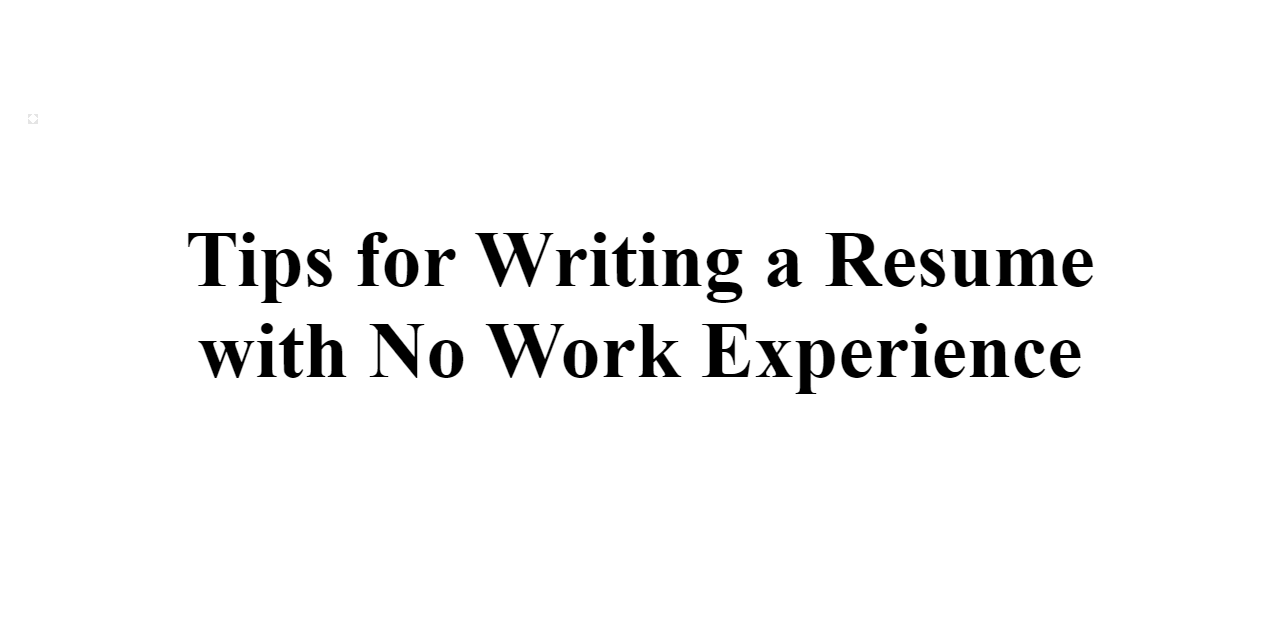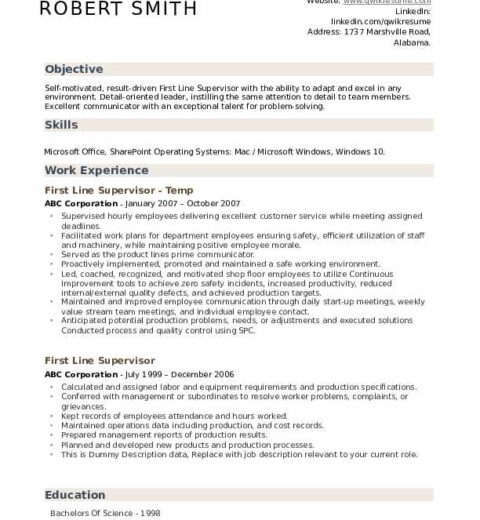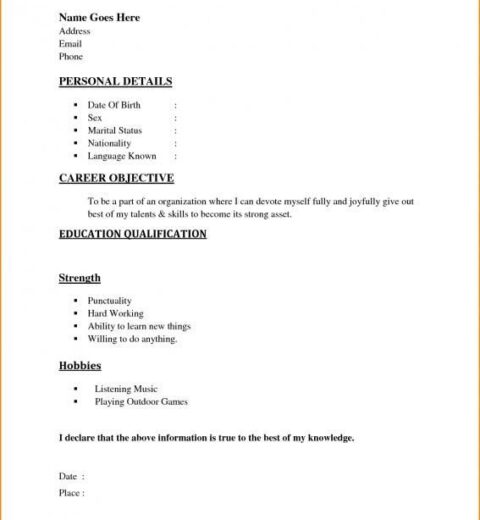Crafting a resume when you have little to no work experience can seem like a daunting prospect. Have you ever stared at a blank page and wondered, “How can I possibly showcase my skills when there’s no job history to back them up?” This question often echoes in the minds of many, particularly students, recent graduates, or individuals transitioning careers. However, the absence of formal experience doesn’t equate to a lack of competencies, qualities, or potential. In fact, this can be an advantageous moment to creatively present your qualifications and aspirations. Here’s how to construct a resume that not only fills the void left by experience but illuminates your strengths and prospects.
1. Start with a Compelling Objective Statement
Begin your resume with a captivating objective statement. This section sets the tone for your resume and provides potential employers with insight into your ambitions and what you bring to the table. An objective statement should be succinct—ideally, two to three sentences—that captures your career objectives while emphasizing your enthusiasm for learning and contributing. Instead of saying, “I want a job,” try something more dynamic, such as, “Eager to leverage my strong analytical skills and creativity as a marketing intern to drive innovative projects that engage target audiences.” This method immediately conveys your motivation and willingness to contribute.
2. Highlight Your Education
For those without a wealth of professional experience, your educational background is gold. This section should not only list your degree(s) but also elaborate on relevant coursework, projects, or academic achievements that reflect your skills. Consider including honors or extracurricular activities that showcase leadership, teamwork, or other valuable traits. For example, “Completed a capstone project on sustainable marketing strategies, leading a team of five to develop a feasible entrepreneurial plan.” Such details elucidate your hands-on experience and practical application of knowledge.
3. Include Relevant Skills
Next, curate a skills section that aligns with the job you are targeting. Analyze the job description and identify both hard and soft skills that are prerequisites for the position. Hard skills could include software proficiency, technical abilities, or language fluency, while soft skills might encompass communication, problem-solving, and adaptability. Crafting this section with a mixture of both demonstrates your versatility and adaptability, making you an intriguing candidate. Present this in a bullet-point format for clarity and emphasis.
4. Emphasize Volunteer and Extracurricular Activities
If your professional history is sparse, compensating with volunteer work and extracurricular engagements can substantially enhance your resume. Involvement in community service, student organizations, or even informal projects can provide concrete examples of your responsibility, commitment, and transferable skills. For instance, “Organized a charity event that raised over $2,000 for local shelters, coordinating logistics and liaising with vendors.” Such activities not only illustrate your initiative but also portray your multifaceted character.
5. Showcase Internships and Freelance Work
Even if these roles are unofficial or unpaid, they can fortify your resume significantly. Any relevant internship, even if brief, should be highlighted along with specific accomplishments and skills garnered during that time. Freelance work, whether it entails writing, design, or consulting, can also be listed to show your proactive nature and capacity for self-direction. As an example, “Provided freelance graphic design services for various local businesses, creating impactful branding materials that enhanced client engagement by 30%.”
6. Craft a Professional Summary
A professional summary, although optional, can serve as an engaging prelude to your qualifications. This brief paragraph should encapsulate your background, skills, and what you aim to achieve. It acts as a narrative hook that can intrigue the reader while providing context. “Motivated and detail-oriented college graduate with strong interpersonal skills and a passion for digital marketing. Adept in leveraging social media platforms to foster brand loyalty and consumer engagement. Looking forward to contributing fresh perspectives in a dynamic marketing team.”
7. Personal Projects and Certifications
In today’s digital age, personal projects can be as valuable as formal job roles. If you have engaged in projects that resonate with your desired field—be it a blog, a programming project, or a research endeavor—include those as well. Additionally, any certifications relevant to your chosen career path can showcase your commitment to professional development. “Certified in Google Analytics, demonstrating proficiency in data analysis and strategic insights.” These inclusions demonstrate proactive learning and self-improvement.
8. Format and Presentation
The layout of your resume is crucial in ensuring readability and professionalism. Utilize a clean, simplistic design with appropriate headings to guide the reader’s eye. Consistency in font type and size, as well as careful attention to spacing, can dramatically enhance the overall appearance. Avoid overcrowding any single section, ensuring that ample white space exists to facilitate a restful reading experience.
9. Proofread and Seek Feedback
Finally, no resume is complete without meticulous proofreading. Typos can undermine even the most compelling content. It’s prudent to enlist a trusted peer or mentor to provide feedback, ensuring that you’re not only presenting your best self, but also that your resume resonates well with others. Constructive criticism can unveil blind spots and drastically improve the overall impact of your document.
In conclusion, while embarking on the journey to create a resume absent of traditional experience can be fraught with uncertainty, embracing creativity and a targeted approach can yield impressive results. By effectively narrating your educational background, skills, and engagements, you will articulate a narrative that showcases your potential, ambition, and readiness to thrive in your chosen field. Always remember: potential lies within every aspiring candidate, and with the right presentation, even a blank slate can become a canvas for opportunity.




